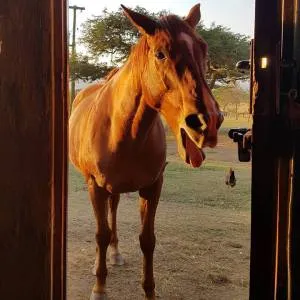This is a blog post I originally published here: https://eqonehorsemanship.wordpress.com/2017/05/27/investigate-everything-keep-whats-good
When I first started learning about horsemanship I got myself quite set in thinking that there was only one way to work with horses, and that was the right way. My way. The only way. All other methods / approaches were WRONG. I felt superior in my knowing that my way was the only and best way ever in the world. Ever.
Thankfully I started seeing things differently at some point. It started with me allowing myself to consider the possibility that maybe there were other ways to go about this, and that maybe some of those ways might be more effective, or even more pleasant. I don’t recall that there was a specific trigger or event that precipitated my change of perception, but what I do recall is that the change started with my willingness to consider things outside of my rigid box of opinions.
I find it interesting looking back now, it’s like I had locked myself into this one way of seeing horsemanship, and I believed so strongly that it was the best way – but I hadn’t even looked into different ways, so my belief was totally unsupported. That’s the funny thing about some of the things we believe, it’s like we become lost in the righteousness of our belief that we will not even look at anything else. In some areas of life this kind of behaviour may not have a big effect on anyone’s life, but when it comes to horsemanship, beliefs like these can and do affect the lives of our horses.
Let me take an extreme example of what some trainers believe you must do to the Tennessee Walking Horse – “soring” or putting huge blocks on their hooves to force them to pick their legs up higher and “step up” nicely. To most of us, that is a completely unacceptable practice – but to the people who are doing it, they will (likely) believe that it is the best method to achieve their desired outcome. This of course can be seen in all areas of life – and it’s up to us to recognise that our action can and do effect the lives and happiness of others.
I may not have done things like in the example above, but I did try to force my ways onto my horse, even when he clearly was not understanding or enjoying what we were doing. I told myself that he would learn in time, I just had to keep trying. Am I ashamed of some of the things I did? Yes. Will I hold my mistakes against myself? No. I am learning from my mistakes and making sure that I am listening to my horse. Thankfully our horses are very forgiving, probably more than we deserve. We always have the opportunity to change, and our horses will change with us if we help them.
I have a principle I live by now, not only with my horsemanship but in all areas of my life: Investigate all things and keep what’s good. Even in those methods or practices that I generally don’t agree with I may find just one kernel of something good that I can test in my own life. And yes, I won’t simply see something that looks cool and then make it my motto in life – I will take the time to test it and see for myself how well it works, where it works, for which horse it works. Which brings me to an important point: not every exercise will work for every horse, and it’s up to us to hear when our horses tell us that something isn’t working, and our responsibility to change it.
/